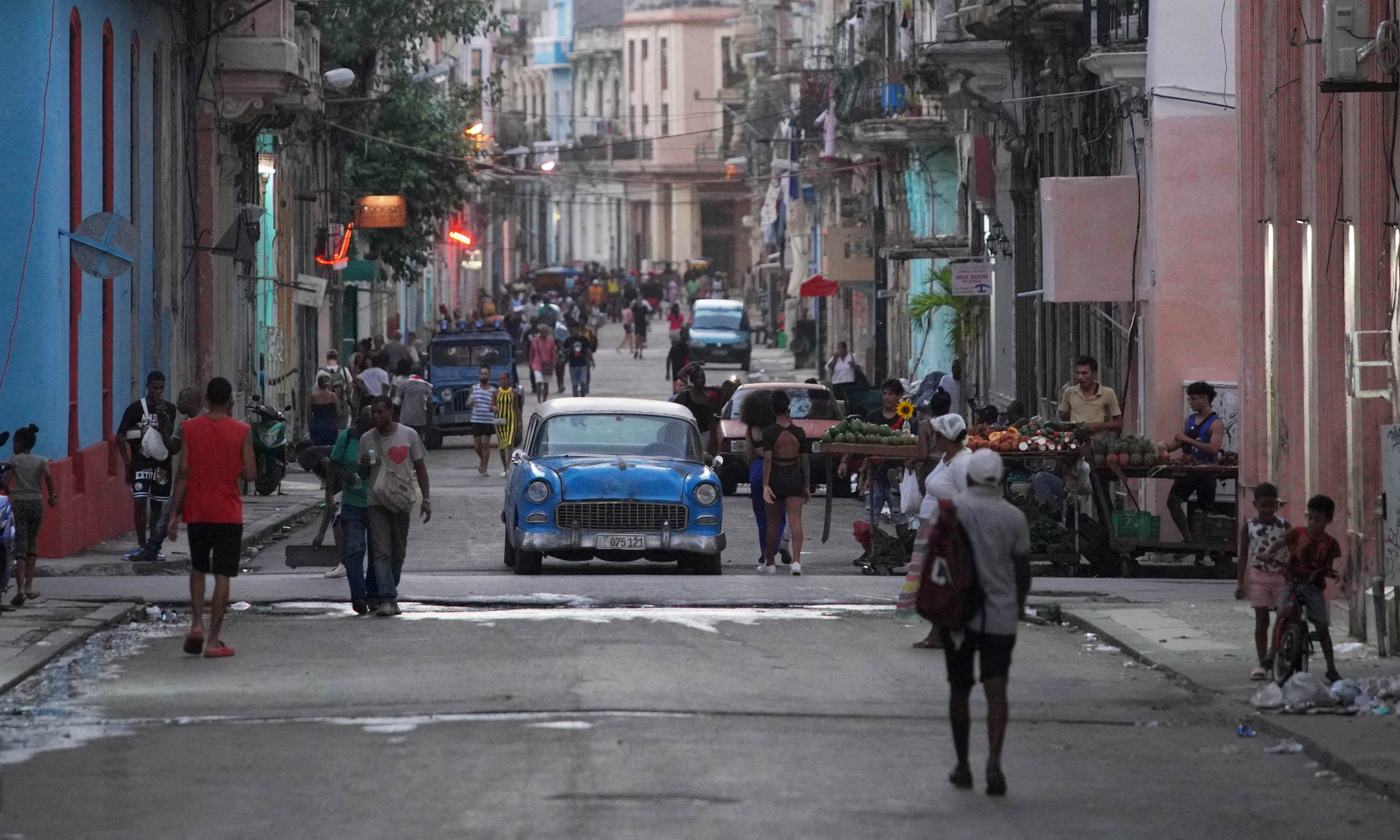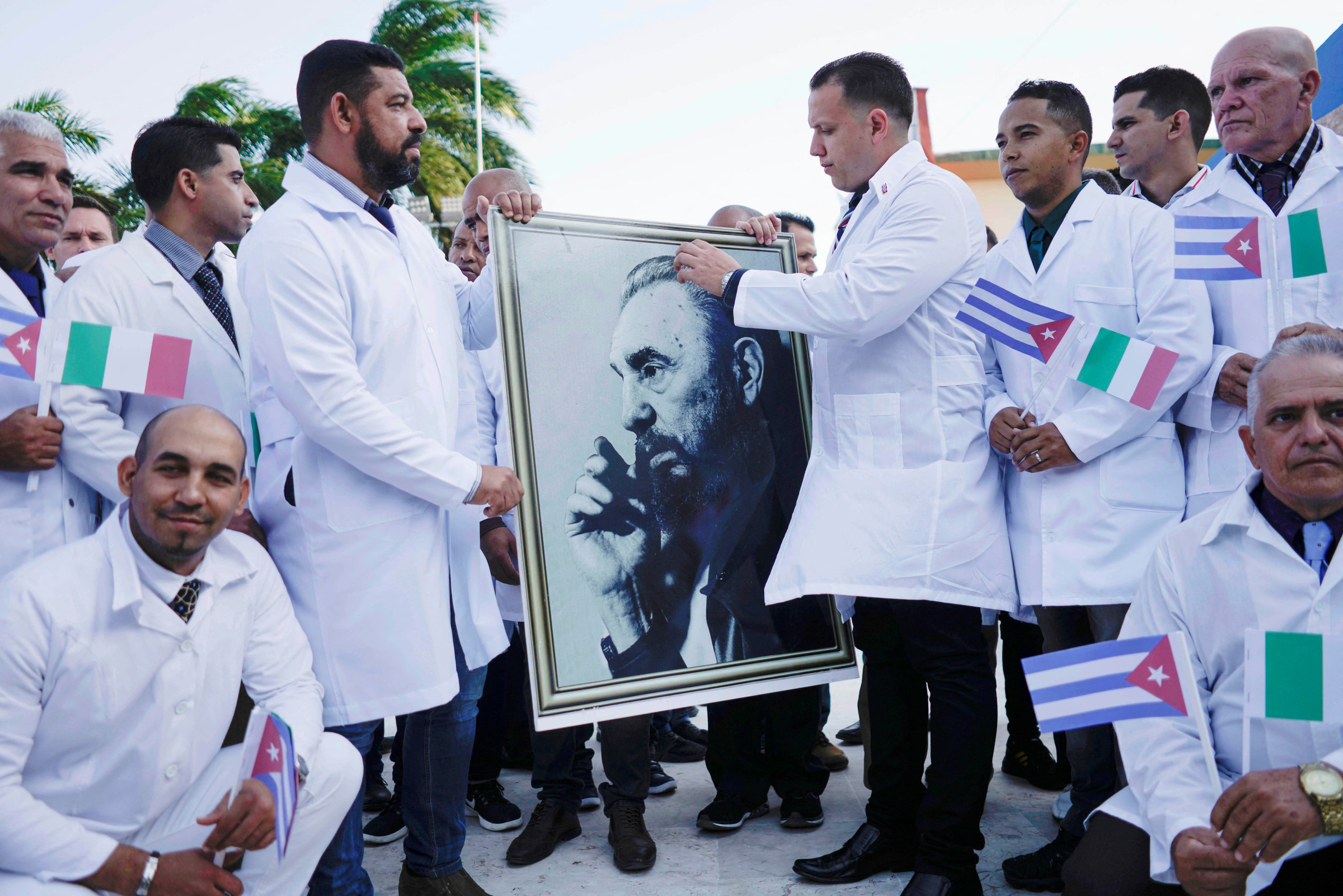In the heart of Havana, the Cosme Ordonez Carceller Teaching Polyclinic stands as a testament to Cuba's community healthcare model: free, accessible, community-integrated, and prevention-focused. Established in 1974, this facility serves approximately 13,000 residents, offering a wide range of services from cardiology and orthopedics to reproductive counseling and genetic testing.
The polyclinic is named after Dr. Cosme Ordonez Carceller (1927-2019), an epidemiologist who pioneered the polyclinic model in the 1960s and 1970s. He also initiated numerous innovative healthcare programs, including the "Grandparents' Club" for the elderly, which was later replicated nationwide.
The Cosme Ordonez Carceller Teaching Polyclinic aims to "leave no Cuban behind" in healthcare.
 |
People on the streets of Havana, Cuba, in 11/2023. Photo: Reuters |
People on the streets of Havana, Cuba, in 11/2023. Photo: Reuters
To achieve this, Cuba's healthcare system operates with a top-down structure: The National Assembly oversees the Ministry of Public Health, which sets national policy and directs health organizations. Provincial governments oversee provincial health departments, which manage larger hospitals and specialized facilities, and then delegate to municipalities to run smaller hospitals.
Community polyclinics form the backbone of the system, providing specialized services, diagnostics, and emergency care, while coordinating closely with family doctors and nurses who are the first point of contact for residents.
Prevention is paramount, through community awareness, early intervention, and comprehensive care. Equitable access for all is also prioritized.
Despite a 6-decade US embargo, Cuba maintains efficient resource allocation, ensuring equal access nationwide. This demonstrates Cuba's philosophy: healthcare is a fundamental human right, not a privilege.
Cuba has achieved impressive health milestones. The island nation identified HIV in 1983 and quickly established monitoring and treatment systems. In 2014, it eliminated mother-to-child transmission of HIV and syphilis, a feat few nations, including the US, have accomplished. During the Covid-19 pandemic, Cuba developed two vaccines and implemented early vaccination, keeping infection rates low. It even supplied vaccines to friendly nations, including Vietnam.
Cuba has developed successful treatments for diabetic foot ulcers and a drug to slow or reverse Alzheimer's symptoms. 99% of Cuban children are vaccinated, and the infant mortality rate is lower than in the US. Doctors regularly make home visits to the elderly and expectant mothers.
The US embargo has caused shortages of medicine and equipment and hindered scientific research. Many foreign pharmaceutical companies, fearing US sanctions, avoid trading with Cuba, leading to shortages from aspirin to cancer drugs. Even access to online international medical literature is restricted.
Despite this, Cuba continues to invest in healthcare. Medical education is fully state-funded. Students gain early practical experience in community clinics, ensuring strong primary care skills. This allows Cuba to train skilled doctors dedicated to community service.
Cuba also focuses on biotechnology, vaccine development, and herbal medicine research to offset import restrictions.
 |
Cuban doctors hold portraits of the late President Fidel Castro during a farewell ceremony for a medical team departing for Italy during the Covid-19 pandemic in Havana in 3/2020. Photo: Reuters |
Cuban doctors hold portraits of the late President Fidel Castro during a farewell ceremony for a medical team departing for Italy during the Covid-19 pandemic in Havana in 3/2020. Photo: Reuters
For decades, Cuba has sent thousands of doctors abroad, assisting areas affected by natural disasters or lacking medical services, especially in Latin America, Africa, and the Caribbean. Over 24,000 Cuban medical personnel currently work in nearly 60 countries.
Solidarity and mutual support are pillars of Cuban foreign policy, making medical cooperation a hallmark of its diplomacy.
Most of Cuba's medical aid is free, particularly for low-income countries. In the past decade, Havana has begun receiving economic compensation from wealthier nations. A portion of the fees paid by host countries goes directly into Cuba's public health system.
However, Washington has repeatedly criticized this program, alleging that Cuban doctors working abroad receive very low wages, akin to "forced labor," and has imposed new restrictions. On 25/2, US Senator Marco Rubio announced visa restrictions on Cuban government officials and anyone globally "cooperating" with Cuba's international medical aid program.
The US has offered no concrete evidence for these claims. The accusations have drawn strong reactions from many Latin American countries benefiting from Cuba's program.
Barbados Prime Minister Mia Mottley called the US stance "unfair and unjust." "We could not have overcome the Covid-19 pandemic without Cuban nurses and doctors," she said. Trinidad and Tobago Prime Minister Keith Rowley warned that US interference in Caribbean healthcare decisions is "unacceptable."
Despite the US accusations, Cuban doctors continue their work, dedicated to the principle that healthcare is a right for all, not a privilege, and committed to leaving no one behind.
Thanh Tam (Peoples Dispatch, BdF, Jacobin)












